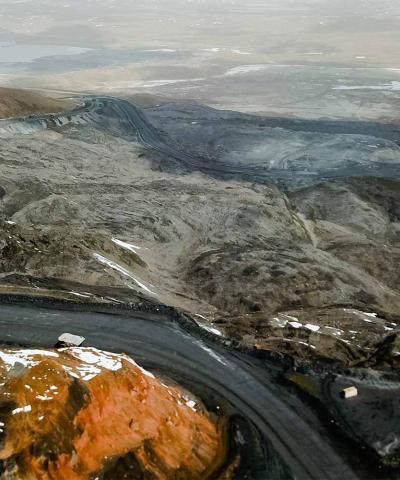
Bachelor’s degree in Geology and Environment
Geologists respond to urgent climate, environmental and energy issues in relation to the supply of necessary resources (raw materials, energy and water), as well as land use and conservation.
The objective of geology is to study the rocks and subsoil of the planet in order to understand how it works. However, the practical applications of this science are often ignored. Without geologists, there would be no raw materials to make your smartphone, no resources to produce energy, and no drinking water from groundwater.
Geologists work in a wide variety of sectors: soil decontamination, groundwater, the environment, recycling, construction and public works, geotechnics, natural hazards, mineral resources, energy geology, geothermal energy, gas storage, marine geology, and digital technology applied to geosciences.
Mobile and adaptable, these experts are internationally recognized. These characteristics mean that they are also recruited in sectors other than geosciences.
At UniLaSalle, the two geology programs, Geoscience and Environmental Engineering and Bachelor in Geoscience and Environment, lead to six major job families and a multitude of areas of expertise.
Lovers of rocks, fossils and minerals will find their perfect place in a geology course. Those at UniLaSalle focus heavily on fieldwork. And for fans of new technologies, the GeoLab allows you to do 3D modeling applied to geosciences thanks to its cutting-edge equipment.
Geologists are called upon to implement geological solutions for carbon neutrality, energy mix and resource diversification for a wide range of sectors, from food and energy transitions to technological innovations, healthcare and, of course, the industrial and construction sectors.
These geologists are interested in hydrogeology, groundwater being a major vector for the supply of drinking water. They also work on soil and subsoil decontamination. In addition to finding water resources, they work to protect them, in particular by preventing pollution of the subsoil surrounding these water resources by industrial activities.
They work on land-use planning, taking into account the nature of the subsoil and the associated risks, in order to build sustainable infrastructures. They take into account local specificities and environmental issues in order to respond to problems linked to climate change.
These risks are becoming increasingly frequent due to the impact of climate change: floods, landslides, mudslides, clay shrink-swell, seismic activity, volcanism, for example.
They will apply their knowledge of the marine environment, working, for example, on coastal erosion, coastal development, new energy sources and mineral resources. They are able to take into account the risks associated with marine currents and weather, acquire data at sea and propose innovative solutions that take environmental issues into account.
This dual skill set enables them to work in all areas of the geosciences using digital tools. They are experts in modeling, visualization, massive data processing, Geographic Information Systems and Data Science...
Finding his happiness on the ground, the technician makes perfect use of the tools and analyzes the data collected on the sites. He often works under the responsibility of an engineer, who, in addition to scientific and technical skills, will also have solid project management and commercial skills.